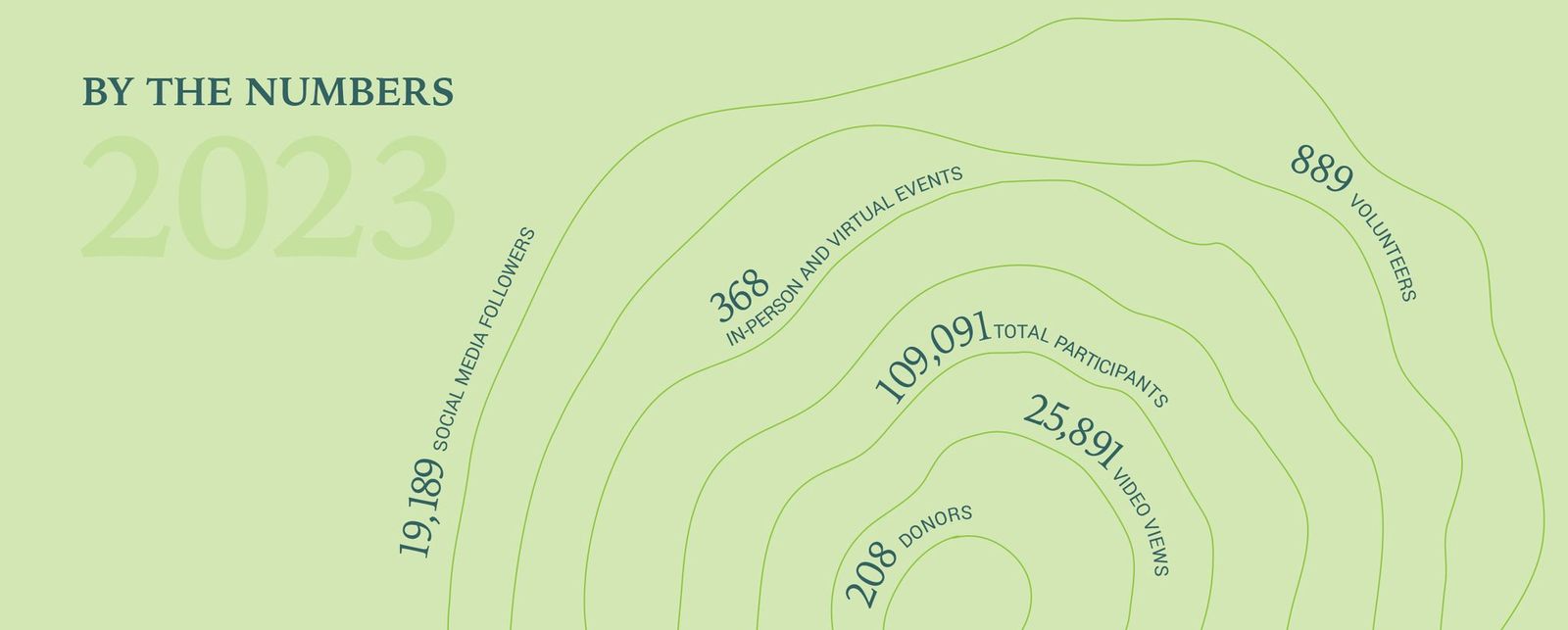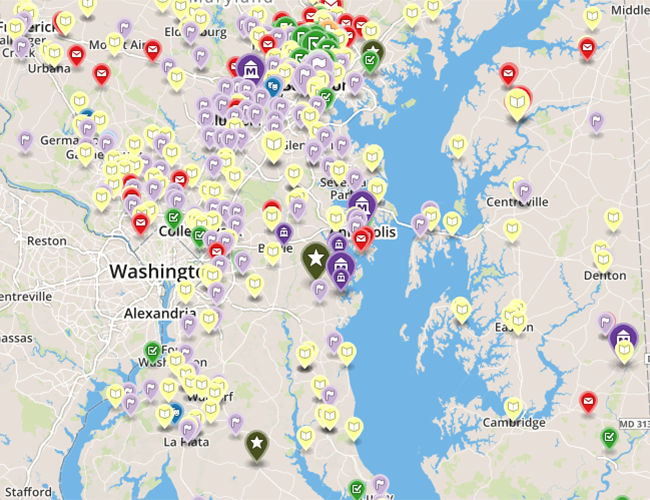From Garrett County to Worcester County and everywhere in between, our programs are capturing the attention and imaginations of more and more Marylanders every year.

Statewide Map
To what extent do Maryland Humanities programs touch the lives of state residents? To put it in context, let’s consider the numbers from 2020:
Partners: 364 Participants: 81,479 Audience: 190,862 Scholars: 221 Youth Participants: 37,952 Donors: 413 Volunteers: 873 Events: 1,021 Towns: 123

